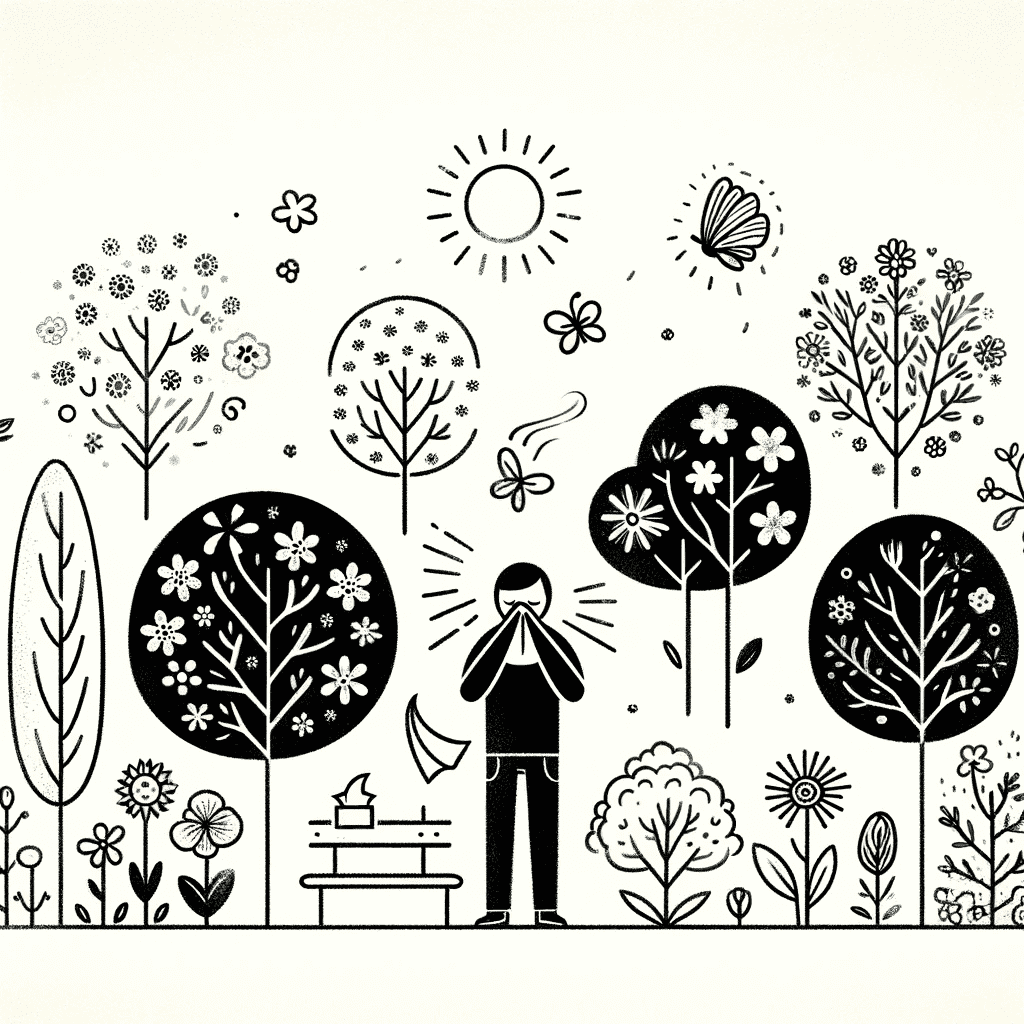Spring is a beautiful season that brings new life and fresh growth. But for many, it’s also a time of sneezing, coughing, and itchy eyes.
If you’re one of the millions of people who suffer from spring allergies, you know how frustrating and uncomfortable it can be.
In this article, we’ll explore the causes and symptoms of spring allergies and provide tips on how to manage them effectively.
Symptoms of Spring Allergies
Spring allergies are caused by a hypersensitivity to pollen from trees, grasses, and other plants that bloom in the spring. The most common symptoms of spring allergies include:
- Sneezing
- Runny or stuffy nose
- Itchy or watery eyes
- Scratchy throat
- Coughing
- Fatigue
These symptoms can range from mild to severe and last for weeks or months.
Causes of Spring Allergies
Spring allergies are caused by the body’s immune system overreacting to pollen from blooming plants.
When pollen enters the body, the immune system mistakes it for a harmful invader and releases chemicals that cause the symptoms of an allergic reaction.
Treatment Options for Spring Allergies
There are several treatment options available for spring allergies, including:
- Over-the-counter medications: Antihistamines, decongestants, and nasal sprays can help relieve symptoms of spring allergies. These medications are available over the counter at most drugstores.
- Allergy shots: Allergy shots, also known as immunotherapy, can help reduce the severity of spring allergies over time. They work by gradually desensitizing the immune system to the allergen.
- Avoidance strategies: Avoiding exposure to pollen is the most effective way to manage spring allergies. This can include staying indoors during peak pollen times, using an air purifier in your home, and keeping windows closed.
- Natural remedies: Some people find relief from spring allergies using natural remedies, such as saline nasal rinses, herbal supplements, and essential oils.
Spring allergies can be a nuisance, but they don’t have to control your life.
By understanding the causes and symptoms of spring allergies and using effective treatment strategies, you can manage your symptoms and enjoy the beauty of the season.
If you’re experiencing severe or persistent symptoms, talk to your healthcare provider about the best treatment options.
FAQ on Natural Allergy Relief
To stop allergies immediately, try natural remedies like rinsing your sinuses with a saline solution, using a neti pot, or inhaling steam to clear nasal passages. Drinking herbal teas like peppermint or ginger can also provide quick relief.
While it’s challenging to eliminate seasonal allergies permanently, you can reduce their impact by maintaining a clean living environment, using air purifiers, and incorporating foods rich in antioxidants and anti-inflammatory properties into your diet. Regular use of local honey and consistent immune-boosting practices may also help.
Home treatments for pollen allergies include using a saline nasal spray, keeping windows closed during high pollen seasons, and showering after outdoor activities to remove pollen from your skin and hair. Herbal supplements like quercetin and butterbur can also provide relief.
Natural remedies for allergies and sinus issues include consuming local honey, drinking herbal teas like nettle and chamomile, using essential oils such as eucalyptus and peppermint, and applying warm compresses to the face. Eating anti-inflammatory foods like garlic, ginger, and turmeric can also help.
Symptoms of seasonal allergies in adults include sneezing, nasal congestion, runny nose, itchy or watery eyes, coughing, sore throat, and fatigue. Some may also experience headaches and sinus pressure.




